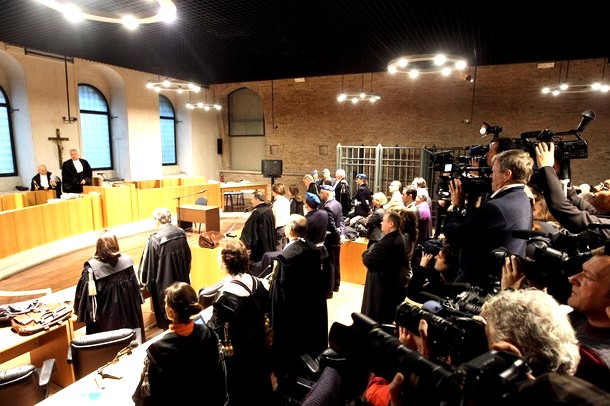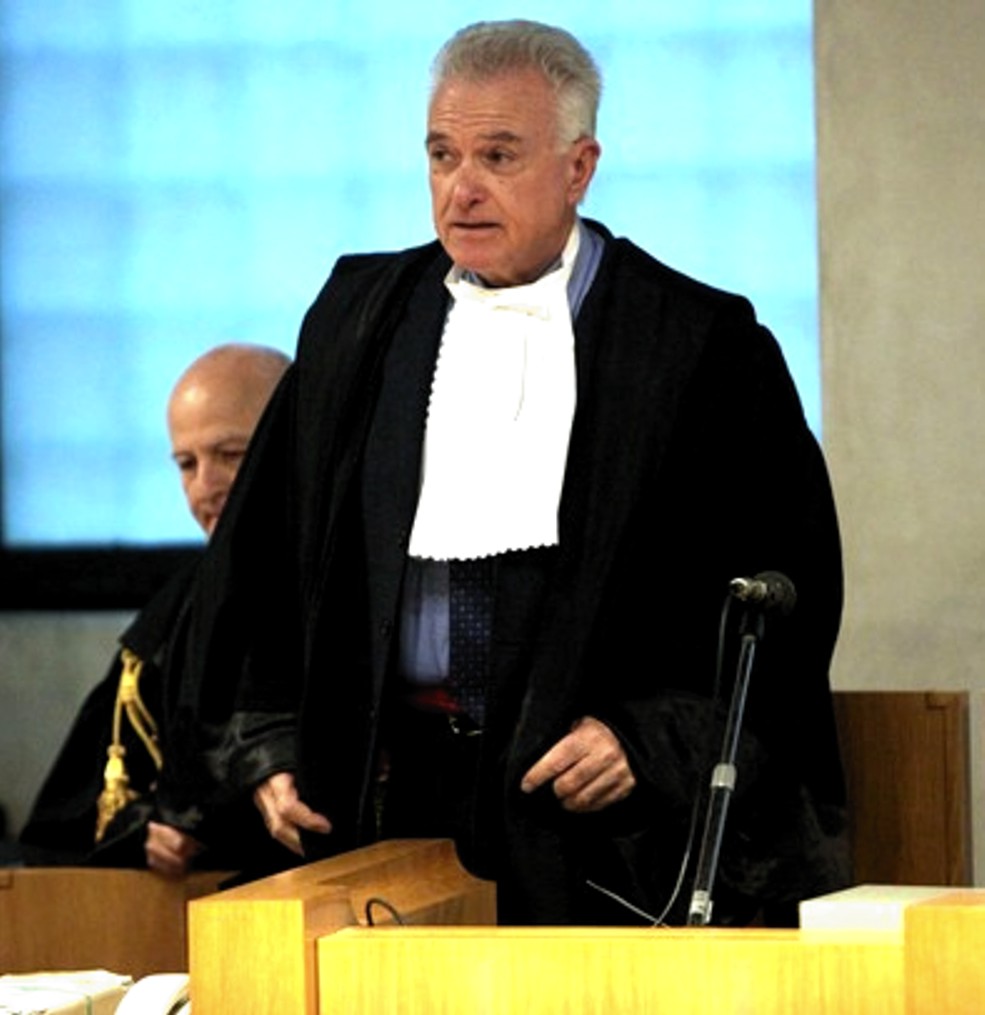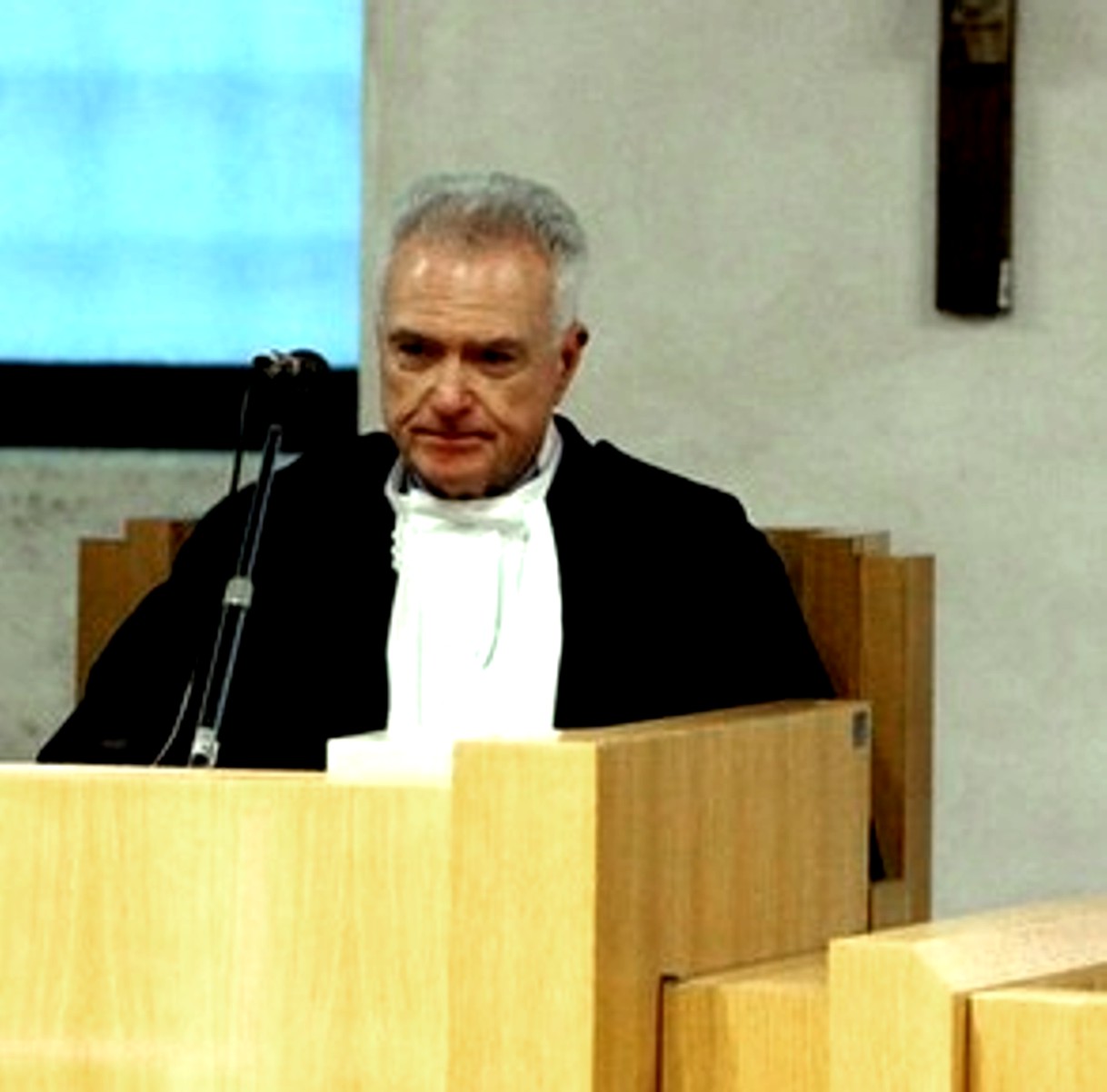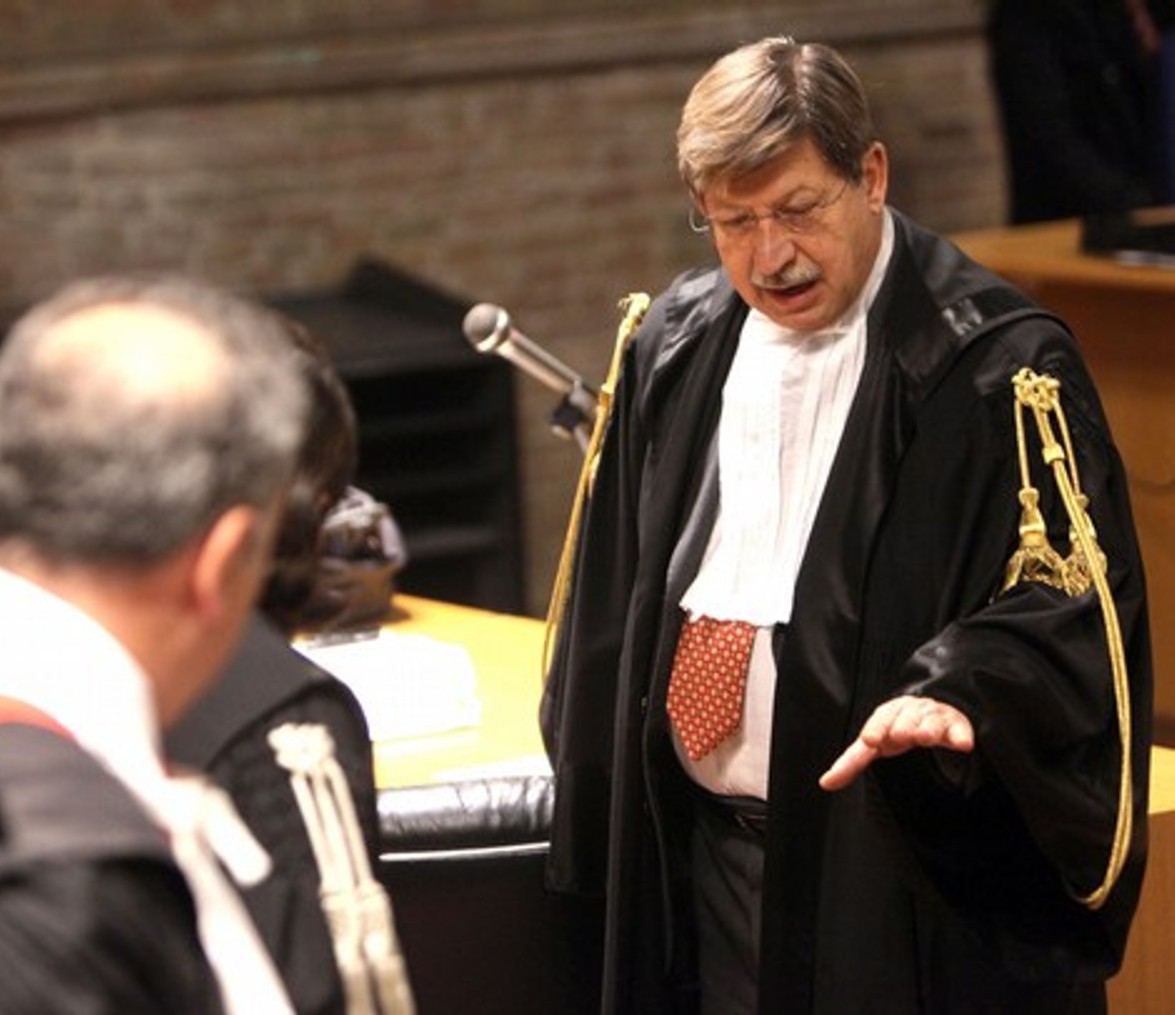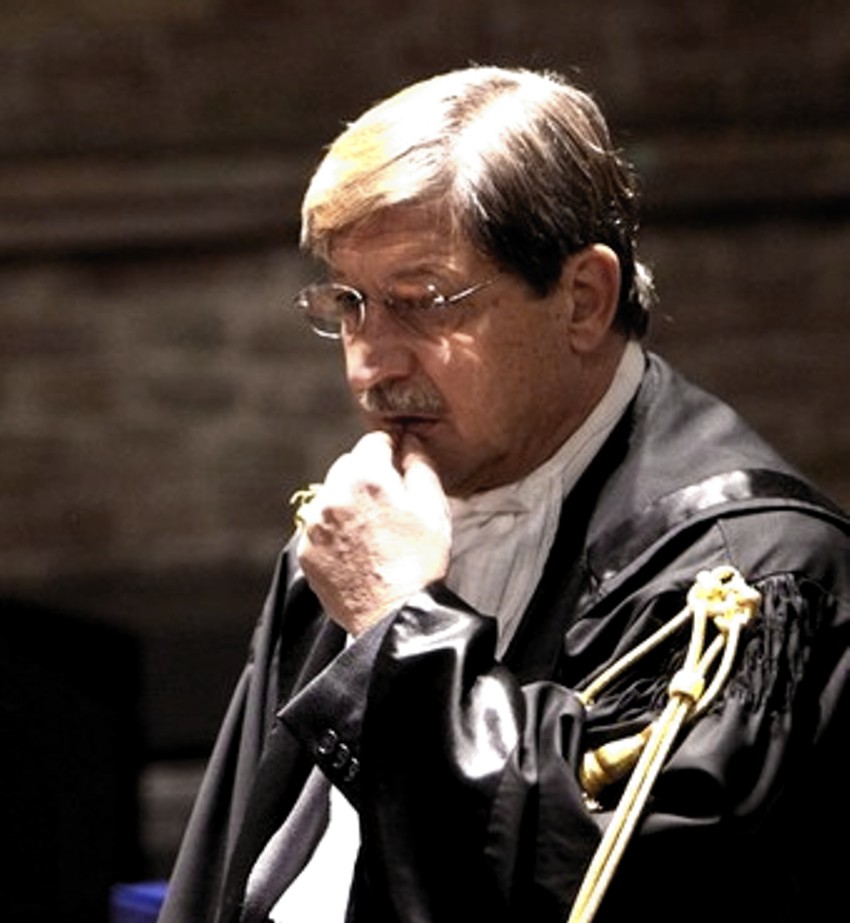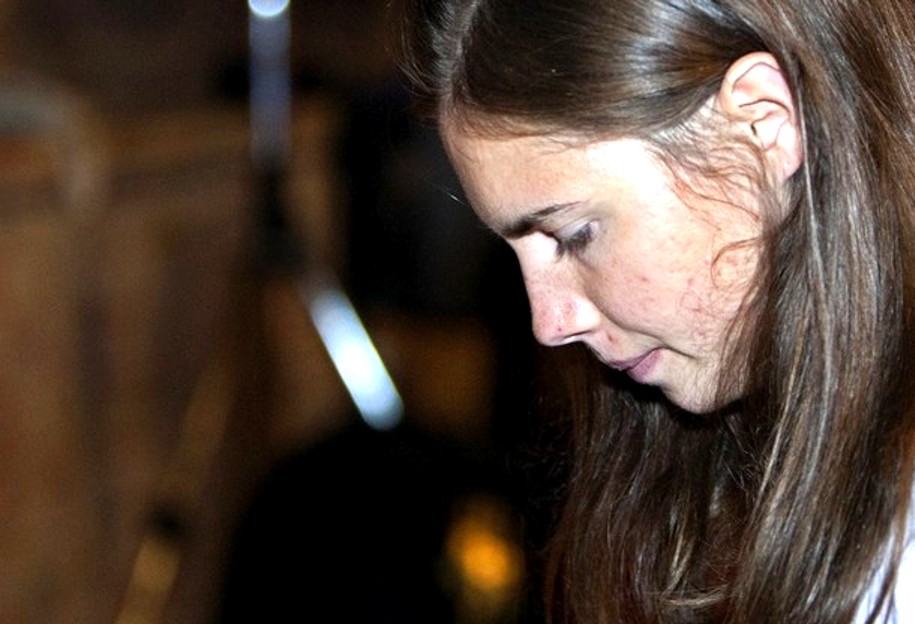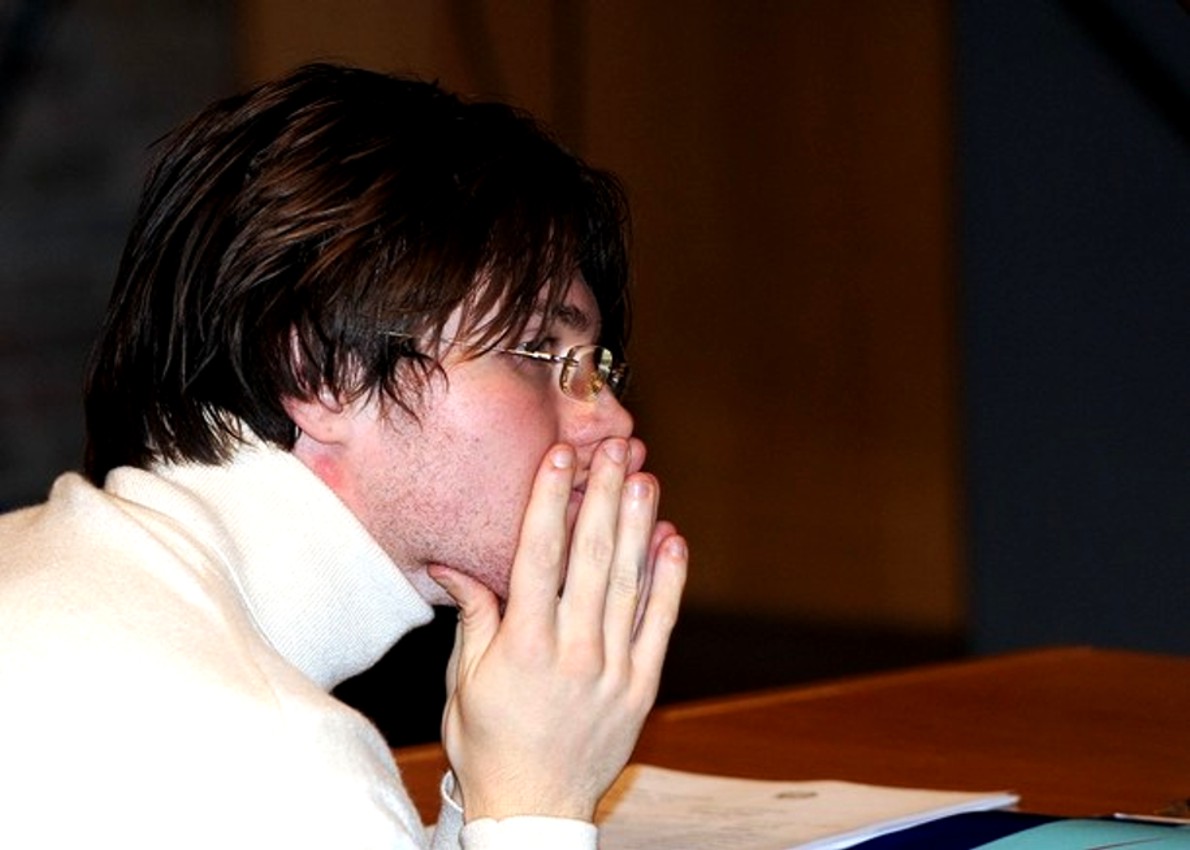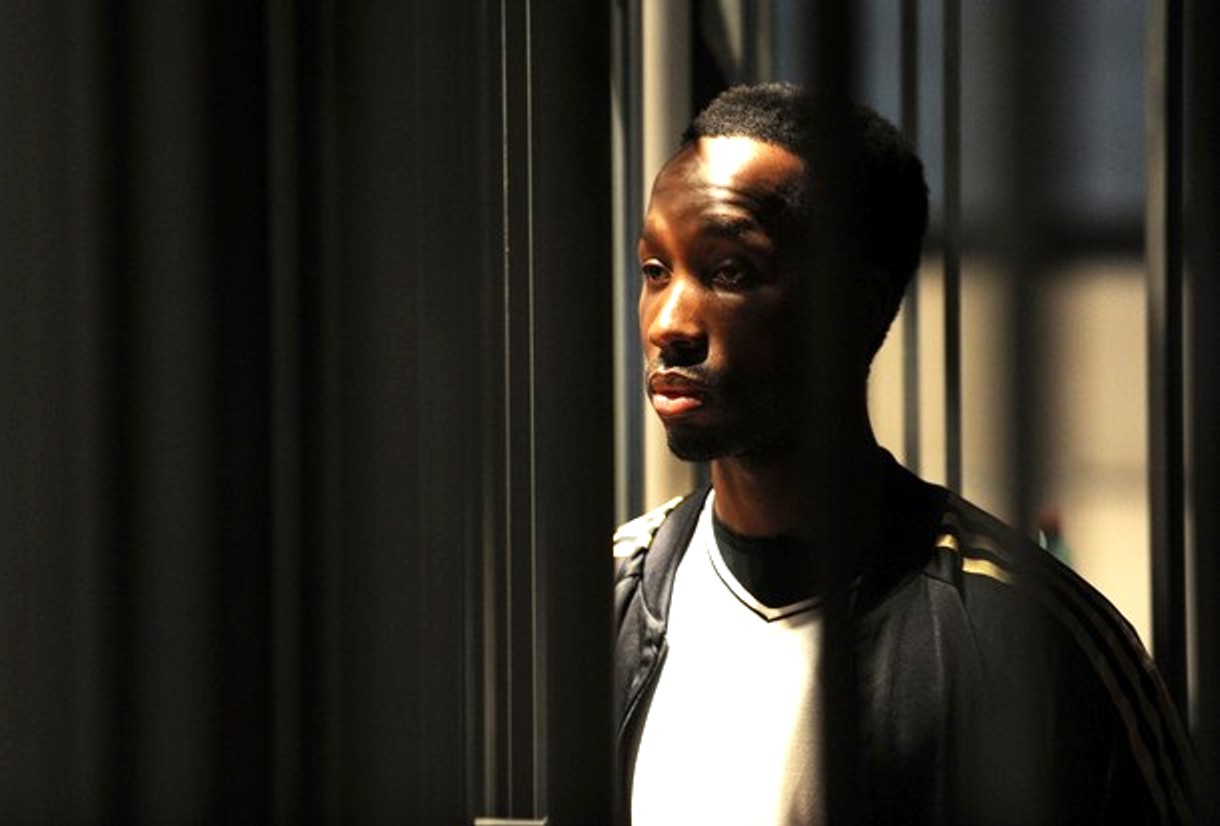
Headsup: Disney's Hulu - mafia tool?! First warning already sent to the Knox series production team about the hoaxes and mafia connections. The Daily Beast's badly duped Grace Harrington calls it "the true story of Knox’s wrongful conviction of the murder of her roommate". Harrington should google "rocco sollecito" for why Italians hesitate to talk freely.
Friday, December 03, 2010
Explaining The Massei Report: Establishing The Time When Meredith Passed On
Posted by Storm Roberts
Why This Matters So Much
Perhaps the hardest parts of the Massei Report for compassionate readers to take are those concerning Meredith’s wounds and time of death.
Those passages commence early in the report and, as with our translation of much of the Micheli report, left our translators and many readers disturbed and a few of them at least in tears.
This is an abbreviated overview of how forensic medicine helped the court to establish the time of Meredith’s death.
Please click here for more
Monday, November 29, 2010
Explaining The Massei Report: The Timeline For Events Before, During, And After The Night #1
Posted by catnip
The Masssei Timeline To Midnight 1 Nov
These two posts list all of the events precisely timed in the Massei Report. Page numbers shown in brackets are those in the original Italian version.
This timeline will be reposted over on the TJMK Massei Report summaries and highlights page as we populate that page further starting this week.
There are plenty of mentions of imprecise occasions and general time periods, such as when Rudy told Giorgio Cocciaretto about liking Amanda (p26) or when lawyer Palazzoli found out their stolen computer had been recovered in Milan (p33), but they are not listed here.
nts_before_during_2/”>Post #2
Please click here for more
Explaining The Massei Report: The Timeline For Events Before, During, And After The Night #2
Posted by catnip
The Masssei Timeline After Midnight 1 Nov
We continue here from Post #1 These two posts list all of the events precisely timed in the Massei Report. Page numbers shown in brackets are those in the original Italian version.
There are plenty of mentions of imprecise occasions and general time periods, such as when Rudy told Giorgio Cocciaretto about liking Amanda (p26) or when lawyer Palazzoli found out their stolen computer had been recovered in Milan (p33), but they are not listed here.
Please click here for more
Sunday, November 28, 2010
The Knox Team Makes A Loud Blustery Attempt To Put Lipstick On Its Pig Of A Defense DRAFT
Posted by Peter Quennell
The issues they have to confront include the dramatic changes to her stories, a complete lack of any alibi, the staged break-in, the evidence of mixed DNA (hers and the victim’s), and the proven lies about her activity on the morning after the murder. Taking the court of appeal on a magical mystery tour of a missing knife is nothing more than a distraction.
A court can only strive to establish a motive but, if it’s clear that those tried are guilty, then the motive is not the be all end all.
The most important thing about motive is assessing it in order to determine what the risk is, in future, of the offender repeating the crimes and in murder, especially, what the dangers will be to society.
“Motive” is not an element of the crime. Prosecutors prefer to have a motive because it ads to proof of guilt, but it doesn’t need to be proved. “Intent” is not the same thing “motive.” Intent is an element of first degree murder in common law jurisdictions.
So, media coverage causes unfair trials? Those who endured Stalin’s secret trials might be surprised to know about this. Would a complete media blackout have changed any of the evidence used to convict the two young adults?
It’s ironic that Curt and Edda and the FOA complain about the media influencing the judges and jury in this case when they have done their utmost to influence the legal proceedings in Perugia through the media.
Knox on stand
sure hope Knox’s lawyers aren’t hinging their entire case on the possibility of a second knife existing or not. That’s somewhat beyond belief. They have to deal with the knife that does have her DNA on the handle and Meredith’s on the blade. Mocking the judge for introducing a second knife that wasn’t found sounds like desperation.
The other thing they’re apparently focusing on is lack of motive. This too is a mistake. She’s a quirky Seattlite who conducts sing-a-longs in the courtroom at her own murder trial. And you’re going to ask the appeal court to look deeper for a motive?
I agree that attacking the conviction on the basis of a second knife and motive seems incredibly lame. The evidence you cite is a huge hurdle to get over. They don’t just need to score one or two points (they will probably do so) but address many, many inconsistencies. There are so many strands to this particular web they have woven, and some huge holes in it they have to fill in order to be ‘let off’. I would be astonished if this were to happen. The suggested grounds for appeal here make me pity the pair of them. After all this time, this is their best shot? Holy cow. Their parents must be working hard to maintain the facade of optimism…
I sure hope Knox’s lawyers aren’t hinging their entire case on the possibility of a second knife existing or not. That’s somewhat beyond belief. They have to deal with the knife that does have her DNA on the handle and Meredith’s on the blade. Mocking the judge for introducing a second knife that wasn’t found sounds like desperation.
“Problem is, no one ever mentioned that in court. In fact, the existence of a second knife, Team Knox asserts, was never entered into evidence and as such, should not have appeared in the judge’s reasoning for his conviction.”
Mignini mentioned the second knife when he put forward the prosecution’s scenario of what happened that night.
Wednesday, November 24, 2010
1st Appeal Session: A Roundup Post On Points of Significance In The Italian, UK And US Reporting
Posted by Peter Quennell
The full cycle of court session reporting usually takes quite a few hours, so new items will be added periodically at the bottom of this post.
1) Andrea Vogt in the Seattle Post Intelligencer on the court dates.
Presiding judge Claudio Pratillo Hellman (with assistant judge Massimo Zanetti) swore in the jury of five women and one man, then promptly made his first decision: hearings just once a week—on Saturdays—to accommodate Sollecito’s high profile attorney Giulia Bongiorno (a key Italian parliamentarian and head of the justice commission who recently revealed she is several months pregnant).
Lead Prosecutor Giancarlo Costagliola noted it was out of the ordinary to build a trial around one lawyer’s personal and political engagements, adding that while everyone wants Bongiorno’s pregnancy to go forward regularly, “we must also ensure the trial goes forward regularly.”
But the judge said in order to start the trial “in a serene atmosphere,” he would grant the request, and fixed hearing dates for Dec. 11, 18 and Jan. 15….
2) Andrea Vogt in the Seattle Post Intelligencer on the defense strategy for the appeal.
Knox’s appeal is built largely around a request for an independent review of forensic evidence (in particular the DNA evidence from the knife that prosecutors say was the murder weapon)...
The appeal also cites a lack of motive,and a series of inconsistencies in witness testimony. Put together, that lawyers say, the arguments establish reasonable doubt.
In particular, the appeal introduces new questions about the reliability of testimony of Antonio Curatolo, a homeless man who placed Knox and Sollecito near the scene of the crime the night of the murder.
Sollecito’s appeal also includes an evidentiary review (in particular of the DNA found on the victim’s bra clasp) but also aims to introduce new evidence, such as pillow stains not tested by forensic police, and expert testimony about Sollecito’s computer mouse, whichlawyers say proves he was home when prosecutors claim he was at the murder scene.
3) Andrea Vogt in the Seattle Post Intelligencer on the outcome possibilities.
Prosecutors are also appealing the extenuating circumstances granted to Knox and Sollecito, in hopes that they’ll be handed down a life sentence.
Under Italian law, anything can happen in the appeals process, from complete acquittal, to conviction on lesser charge such as manslaughter, to an even harsher sentence if convicted again.
4) Andrea Vogt in the Seattle Post Intelligencer on changes to Knox’s mood and PR strategy.
Knox did not appear the same carefree Seattle girl who in her first public court statement giggled as she explained that her rampant rabbit vibrator was just a joke, or who would often turn to smile and wave at friends and family during courtroom breaks.
Three years in the Capanne penitentiary have taken their toll—the gravity of her situation has set in, and recent months have been particularly fraught with tension and worry.
“She feels the weight of all of this on her shoulders,” Ghirga said. “She has lost some faith.”
Her family’s approach has also changed. In sharp contrast to the criticisms directed at the Italian judiciary during her first trial, Knox’s stepfather Chris Mellas, told reporters outside the courthouse that the family had “full faith in the Italian justice system,” adding that “after all, Italy’s judiciary has a long and rich history.”
“Amanda is happy to finally get this process going, we have a new jury and new judges. Unfortunately we have the old prosecutor, but you can’t have everything.”
Yet that most controversial figure, prosecutor Giuliano Mignini, was not even present in court. Only co-prosecutor Manuela Comodi donned the black robe to help lead prosecutor Giancarlo Costagliola.
[Below: Broadcast media equipment outside the court last night mixed in with the seasonal funfair in the piazza]
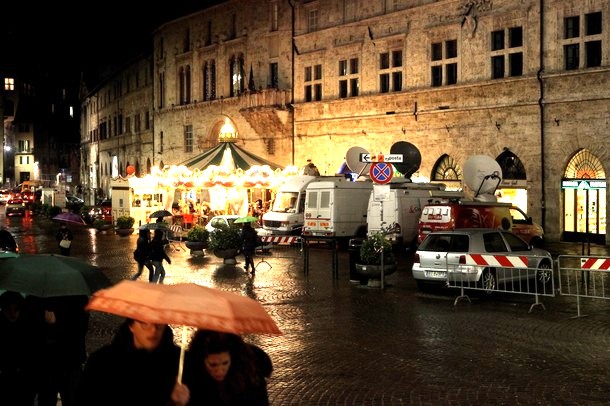
1st Appeal Session: Kercher Lawyer Maresca Says Verdict Perfect, Seems Optimistic This Soon Over
Posted by Peter Quennell
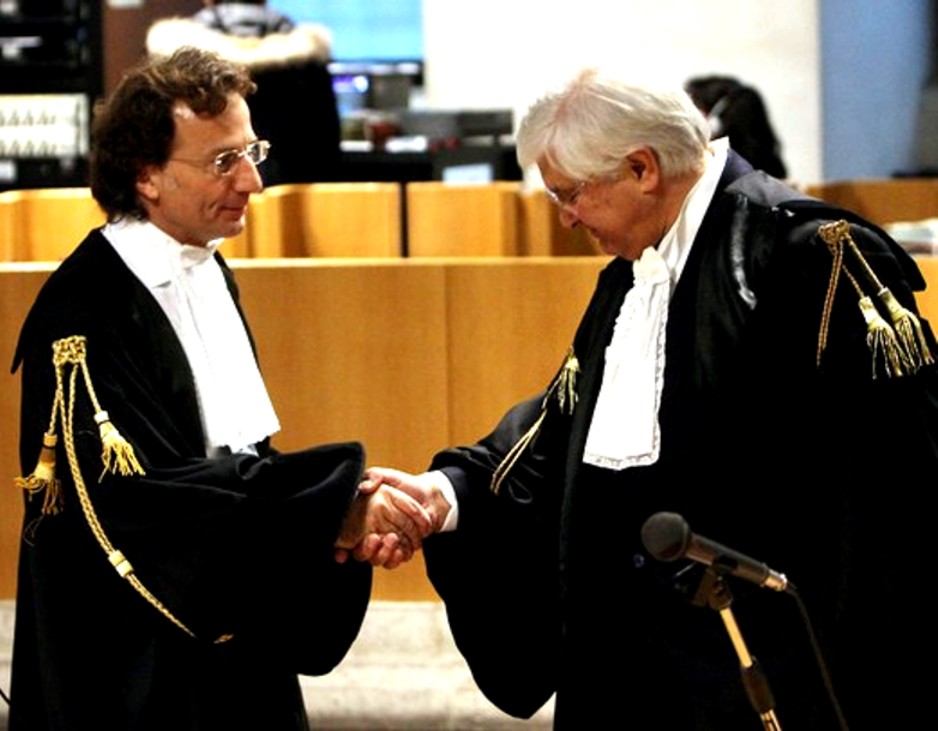
[Above: Kercher family lawyer Maresca with Knox defense lawyer Ghirga]
Dario Thuburn of the AFP reports remarks by Kercher family lawyer Francesco Maresca and Meredith’s father John.
A lawyer for Kercher’s family, Francesco Maresca, said the original sentence against Knox was “perfect” and said he would “call for justice again.”
He said the Kercher family is eager “to close this chapter.”...
Kercher’s father, John, meanwhile sent a letter to the mayor of Perugia through his lawyers to thank local authorities for setting up a scholarship in her name at the university where she was on an exchange programme.
“Meredith loved Perugia and had made a lot of friends there,” John Kercher wrote, adding that the family was “moved” by the scholarship decision.
Also included in Dario Thuburn’s report on today’s short session:
A nervous-looking Amanda Knox began her appeal on Wednesday against her conviction for the gruesome sex-murder of a British student in the medieval Italian city of Perugia in 2007….
“We feel as though we have a very good case,” her step-father, Chris Mellas, told AFP ahead of the hearing. “She’s going to go home,” said Mellas, who has been living in Perugia since September to help Knox prepare for her appeal….
Wednesday’s hearing lasted only a few minutes and the appeal court judge scheduled the next hearings for December 11, December 18 and January 15…
[Knox defense lawyer] Ghirga said the defence would focus on DNA evidence linking Knox to the crime scene that he said had been questioned by three scientific opinions. The lawyer said Knox’s mother and father would be at the hearing on December 11 and said he expected the trial to conclude in February or March.
Asked about her health, he said: “She looks terrible. She’s very thin.”.. Prosecutors have said they will seek a life sentence for Knox—their original request in her first trial—if the conviction is upheld.
Note what Mr Ghirga said about the appeal maybe being over in February or March. The judge decided on sessions only once a week (Saturdays to suit the pregnant lawyer Giulia Bongiorno) which suggests it’s all over in 10 sessions or less.
We believe the only way it can conclude as soon as that is if all or most of the requested DNA re-testing and new witnesses are refused. DNA re-testing alone could take months.
That makes the 11 December appeal session into quite a cliffhanger.
We can see no overwhelming reason yet for the verdicts to be overturned, and if there is going to be one it can only come from that retesting and any new witnesses if allowed.
1st Appeal Session: Appellant Amanda Knox Arrives In Appeals Court
Posted by Peter Quennell
1st Appeal Session: Appellant Raffaele Sollecito Arrives In Appeals Court
Posted by Peter Quennell
1st Appeal Session: Judge Claudio Pratillo Hellmann And Prosecutor Giancarlo Costagliola
Posted by Peter Quennell
Monday, November 22, 2010
Explaining The Massei Report: Motive In The Meredith Kercher Case And Its Addressing In The Report DRAFT
Posted by James Raper
superceded by revised post 12 april 2011
I have read the Massei Report which in the main I thought was excellent. He was incisive with his logic, particularly, though not exclusively, with regard to the staging of the break in and how that necessarily meant that Amanda was present at the scene when the murder was committed.
However, I thought that he was rather feeble in his coverage of the defendants’ motives as to the attack which led to this brutal murder. Perhaps he thought it better to stick with the indisputable evidence.
Since this pointed to a sex attack, he surmised that Guede had a go at Meredith first, and then - because the stimulation was too much for them - he was joined by Amanda and Raffaele. This works but does seem a bit weak. There were, to my mind, undoubtedly other factors at work, and it is these which I wish to address.
For instance, Massei asks, though he says we can not know, had Amanda egged Guede on as to the “availability” (my word, not his) of Meredith during or prior to their presence at the cottage?
Frankly the answer to that has to be “yes” since it is a bit difficult to figure out why Amanda and Raffaele would otherwise wish Guede to join them at the cottage. I doubt that Amanda and Raffaele would have wanted Guede around if they were just going there to have an innocent cuddle and sex and to smoke cannabis, as Massei implies.
The evidence is that Raffaele hardly knew Guede and in the presence of Amanda was very possessive about her. If he had known of Guede’s interest in Amanda he would have been even less keen to have Guede around.
Also, if all was so innocent beforehand, then why would Guede have tried it on with Meredith and then pressed the situation in the face of her refusal to co-operate, knowing that there were two others there who could have come to her assistance?
The answer is of course that Guede knew full well in advance that there would be no problem with Amanda and Raffaele. He had been invited there and primed to act precisely in the way he did, at least initially. Why? Well there is plenty of evidence as to why Amanda, in her mind, may have been looking for payback time on Meredith. Come to that later.
What does not get much attention in the Massei Report, other than a terse Not Guilty at the end, is the matter of Meredith’s missing rent money and credit cards and whether Amanda and Raffaele stole them.
It is as if the Judge (well, the jury really) felt that this was a trivial issue that brought nothing much to the case and thus it was not necessary to give it much attention. And indeed there is no summation of or evaluation of that evidence.
Now that does surprise me. Of course there may have been some technical flaw with the charge and the evidence. But in the absence of any comment on this then we do not know what that may be. What I do know is that the matter, if proven, is not trivial.
A theft significantly ups the stakes for Amanda and Raffaelle just prior to the murder and produces a dynamic, which, threaded together with a sexual assault, makes for a far more compelling scenario to murder.
It also leads one to conclude that there was a greater degree of premeditation involved : not premeditation to murder but as to an assault, rather than the more spontaneous ” let’s get involved” at the time of the sex attack as postulated by Massei. An Italian lawyer could tell us whether this would have added extra time on to their sentence. It is worthy of consideration.
What is the evidence? What evidence was before the court? I do not have access to trial records, only what I have read about the case in the book “Darkness Descending” and on the True Justice for Meredith website. Therefore I stand to be corrected if I misrepresent the evidence or if my interpretation of it does not met the test of logic.
There were two lay witnesses who were compelling in the trial. The first was Filomena Romanelli, the flatmate and trainee lawyer. If there was anyone who was going to ensure that the rent was paid on time, it would have been her.
She gave evidence that the rent being due very soon she asked Meredith about her contribution of 300 euros and was told by Meredith that all was OK because she had just withdrawn 200 euros from her bank. Filomena assumed from Meredith’s reply that the balance was already to hand.
Is there a problem with this evidence? Is it hearsay and thus inadmissible under Italian law?
Perhaps it is not enough by itself because of course had Meredith not in fact withdrawn the money from her bank, or sufficient funds to cover the stated amount, then that would be a fatal blow to that part of the theft charge. Her bank manager was summoned to give evidence, essentially to corroborate or disprove Filomena’s testimony.
I do not know what exactly that evidence was. One would assume that at the very least it did not disprove her testimony. Had it done so that would, as I have said, been fatal. It is also unbelievable that Massei would have overlooked this in the Report. I am assuming that Meredith did not tell a white lie and that the bank records corroberate this.
There may of course be an issue of timing as I understand that the bank manager told the court that transactions at a cash machine are not necessarily entered on the customer account the same day . However that does not seem to me to be significant.
One must also think that the bank manager was asked what other cash withdrawals had been made if the credit cards were taken at the same time as the money. I understand that there is of course a caveat here: my assumptions in the absence of knowing exactly what the bank manager’s evidence was.
It would be useful also to know how and when the rent was normally paid. It sounds as if it was cash on the day the landlord came to collect.
We do know that the police did not find any money or Meredith”˜s credit cards. Had Meredith, a sensible girl, blown next month’s rent on a Halloween binge? Unlikely. So somebody stole it. Again, just as with the fake break in, when according to Amanda and Raffaele nothing was stolen, who and only who had access to the cottage to steal the money? Yes, you have guessed it. Amanda, of course.
Does the matter of missing rent money figure anywhere else? There is the evidence of Meredith’s phone records which show that she rang her bank late on the evening of her murder just prior to the arrival of Amanda, Raffaele and Guede.
Why did she do this? What do you think? What is the first thing you do when you discover that your credit cards are missing? Obviously have a good look round. Then you ring your bank to put a stop on them. It may have been that she was not actually able to do that at that time of night. But worthy of further investigation.
The missing money also figured in the separate trial of Guede. He made a statement which formed the whole basis of his defence. Basically this was that he had an appointment with Meredith at the cottage, had consensual foreplay with her and was on the toilet when he heard the doorbell ring etc, etc.
What he also added was that just before all this Meredith was upset because her rent money had disappeared and that they had both searched for it with particular attention to Amanda’s room. Now why does Guede mention this? Remember this is his defence. Alibi is not quite the right word. He had plenty of time to think about it or something better.
His defence was moulded around (apart from lies) (1) facts he knew the police would have ie no point denying that he was there or that he had sexual contact with Meredith : his biological traces had been left behind, and (2) facts known to him and not to the police at that stage ie the money, which he could use to make his statement as a whole more credible, whilst at the same time giving the police a lead. He is shifting the focus, if the police were to follow it up, on to the person he must have been blaming for his predicament, Amanda.
If all three, Amanda, Raffaele and Guede, went to the cottage together, as Massei has it, then Guede learns about the missing rent money not as referred to in his statement but because Meredith has already discovered the theft and worked out who has had it and challenges Amanda over it when the three arrive.
Perhaps this is when Guede goes to the toilet and listens to music on his Ipod. After all he is just there for the sex and this is all a distraction.
I expect, however, that Guede’s “evidence” was not a factor in the jury’s consideration. Neither Guede’s lawyers nor those for Amanda and Raffaele wanted Guede to testify at the trial, for obvious reasons Without Guede testifying his statement would have been objectionable if not inadmissable.
I would have thought, though, that the prosecution could have brought him in as a witness, with the agreement of the judge, to testify as to the missing rent money only. Guede and his lawyers might well have agreed to this on the basis that such limited questioning would not have incriminated him further and might well have had a beneficial effect in his appeal. Convicted criminals often give evidence in court. What weight is attached to the evidence of a convicted criminal is a matter for the jury.
As the prosecution have appealed Amanda’s and Raffaele’s sentences, asking for lengthier terms, could they produce Guede now? I don’t know.
When were the money and credit cards stolen? According to Amanda and Raffaele they spent Halloween together at Raffaele’s and the next day went to the cottage. Meredith was there. Meredith left at about 1pm to spend the evening with her friends and Amanda and Raffaele left at about 3pm.
This is according to Amanda and Raffaele of course but probably likely because if the money had already been stolen Meredith may likely have known with different consequences for everyone. So Amanda and Raffaele could have stolen the money and credit cards after she left - the day of her murder.
Incidentally Filomena testified that Meredith never locked the door to her room except on the occasions she went home to England. Meredith was a very trusting girl.
What motive had Amanda for wanting the money apart from the obvious one of profit? There are numerous plausible motives.
To fund a growing drugs habit which she shared with Raffaele? Not an inconsiderable expense for a student. Both Amanda and Raffaele explained their confusion and hesitancy as being due to the fact that they had been going rather hard on drugs.
To embarrass Meredith vis a vis her landlord and the other flatmates? Because Amanda’s own financial circumstances were deteriorating and to fund her own rent contribution? She was probably about to be sacked at Lumumba’s bar and to add insult to injury would likely be replaced by Meredith. In fact Meredith was well liked by all whereas Amanda’s star was definitely on the wane.
That must have irked Amanda. Filomena testified that Meredith and Amanda had begun to have issues with each other towards the end.
With Meredith’s money both Amanda and Raffaele could have afforded something a little stronger than the usual smoke and I speculate that they spent the late afternoon getting stoned. Did they use the credit cards? If they did then it was probably small cash withdrawals but the likelihood is that they did not as in the limited time prior to Meredith’s death they had the use of her ready cash, and after her death the safer thing was to destroy them.
Of course Amanda was still an employee of Lumumba and she would have to turn up that evening for work, but perhaps she no longer cared all that much about the consequences.
Again I speculate that she and Raffaele met Guede before she was due at work, discussed Meredith’s “availability” and Amanda, Raffaele and Guede agreed to meet up on the basketball court at Grimana Square between 11 and 11.30pm, by which time Amanda would expect to have got away from the Le Chic bar.
What else did Amanda and Raffaele have in mind when arranging the meeting or when thinking about it afterwards? Guede was of course thinking about sex and that Amanda and Raffaele were going to facilitate an encounter with Meredith later that evening.
However Amanda and Raffaele had something else on their minds. The logic of their position vis a vis Meredith cannot have escaped them. They had taken her money and credit cards whilst she was out. Had she not already discovered this fact then she would in any event be back, notice the money and credit cards were missing and would put 2 and 2 together.
Very probably Meredith had not already discovered the theft because, spending a quiet time with friends, she had no cause to use her credit cards. What would happen? Who would she tell? Would she call the police? How are they going to deal with this? Obviously deny it but logic has its way and the situation with or without the police being called in would be uncomfortable.
They decided to turn the tables and make staying in Perugia very uncomfortable for Meredith. Now the embarrassing, for Meredith, sexual advances from Guede were going to be manipulated by them in to a sexual humiliation for Meredith.
Meredith was not going to be seriously harmed but as and when they were challenged by Meredith over the missing money, as inevitably they would be, she was to be threatened with injury or worse. Knives come in useful here.
She would likely then give up her tenancy at the cottage, perhaps leave Italy. Whether that looks like the probable and likely outcome I leave you to judge, but just how much of this would be precise and careful planning given, as seems likely, that Amanda and Raffaele were going hard on the drugs?
They were not in a position to act any earlier than they did. They knew that Meredith was away with her friends and probably would not come home until much later. Amanda was expected at Lumumba’s. Guede was not available until the pre-arranged time.
In the event Amanda did not have to go to work. She and Raffaele were at a loose end until the time of their pre-arranged meeting with Guede. They got to the basketball court early. They had to wait for him. They could not ring him as he did not have a phone.
We know Amanda and Raffaele were on the basketball court (some of the time if not all of the time) between 9.30 and sometime just before 11.30pm. This is because of the evidence of a Mr Curatolo, the second compelling lay witness. He testified to seeing Amanda and Raffaele having heated arguments, and occasionally going to the parapet at the edge of the court to peer over.
What were they looking at? Go to the photographs of Perugia on the True Justice for Meredith website and you will see. From the parapet you get a good view of the gates that are the entrance, and the only entrance as I understand it, to the cottage.
So why the behaviour observed by Mr Curatolo? They may have been impatient waiting for Guede to arrive. Were they actually to go through with this? One might speculate that Raffaele was not actually as keen on it as Amanda.
Was Meredith at home, alone, and had she found the money was missing and had she called the police or tipped off someone already? Who was hanging around outside the entrance to the cottage and why?
There was, apparently, a car parked at the entrance, a broken down car nearby with the occupants inside awaiting a rescue truck, and the rescue truck itself, all present at different times. Amanda and Raffaele did not wish to be observed going through the gates with these potential witnesses around.
We, of course, cannot know for certain what went on in the minds of Amanda and Raffaele and account for much of their movements between the time of them leaving the cottage at, they say, 3pm and their departure from the basketball court at around 11.30pm. It has to be speculation but there is a logical consistency to the above narrative if they had stolen Meredith’s money and credit cards earlier that day, and their meeting up with Guede just before 11.30pm does not look like a co-incidence.
From there on in to the inevitable clash between Amanda and Meredith over the money and credit cards, the threats and intimidation by Amanda and Raffaele to scare her, the sexual assault as part of that, and the tragic death of Meredith.
In a civil case in this country, the standard of proof is “the balance of probabilities” rather than the higher standard of (to paraphrase) “beyond reasonable doubt” in a criminal case.
If my earlier caveat about the bank manager’s evidence not disproving that Meredith had withdrawn her money is unnecessary then, at the very least, on the balance of probabilities, it is proven that Meredith had that money, and the credit cards, and that Amanda and Raffaele had stolen them from her. Some might think (I do) that it is proven on the higher standard too.
It is a shame that the Massei court did not consider and evaluate all of the evidence before it.
It did not need to fear that by doing so it may have been including something which others might consider eminently appealable, since the evidence and reasoning on which it did convict Aamanda and Raffaele of murder was sound and impeccable.
Addendum : There have been a great many useful comments on this post. As a consequence I accept that the scenario outlined above requires at least two modifications and these are in my last comment below.




